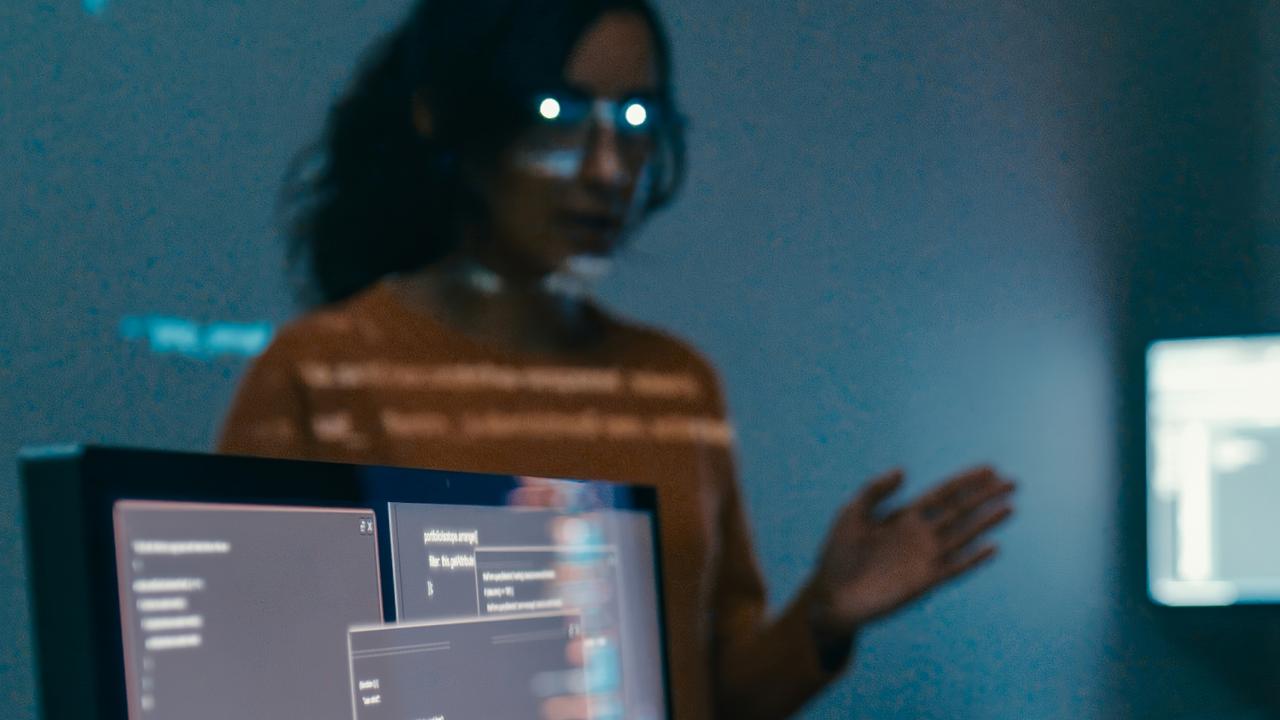Nancy Pelosi Taiwan visit: One strongman versus two powerful women
There’s a monumental showdown brewing, and it will see China’s Xi Jinping up against Taiwan President Tsai Ing-wen and US House Speaker Nancy Pelosi.
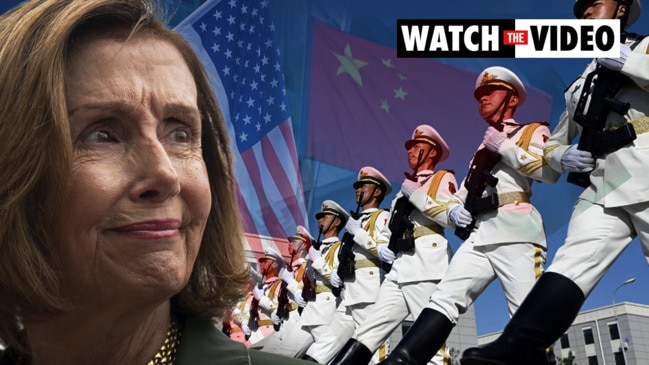
Innovation
Don't miss out on the headlines from Innovation. Followed categories will be added to My News.
One strongman. Two powerful women. Between them, these intractable forces are propelling the world towards a showdown over Taiwan.
The most influential woman in US politics, House Speaker Nancy Pelosi, is determined to meet Taiwan’s first democratically elected female President – Tsai Ing-wen – in her home city of Taipei.
Chairman Xi Jinping, on the brink of sealing his status as China’s ruler-for-life, fears allowing them to do so will make him look weak.
Now the longstanding war of words between these polar opposites has reached a flashpoint.
On Monday, Chinese Foreign Ministry spokesman Zhao Lijian warned Beijing would “never sit idly by” and “take strong countermeasures to uphold China’s sovereignty and territorial integrity”. At the same time, the People’s Liberation Army Eastern Command vowed to “bury any invading enemies” in a fervently patriotic social media video.
“The Chinese side has expressed its serious concerns and solemn position to the US side many times recently that it firmly opposes House Speaker Pelosi’s visit to Taiwan, stressing that her visit to Taiwan will lead to serious consequences,” Zhao said.
Just days earlier, Xi warned US President Joe Biden off Taiwan, insisting: “Those who play with fire will perish by it.”
Ms Pelosi, however, played her cards close to her chest.
She would neither confirm nor deny her intentions.
Now, despite threats and cautions from both sides, Ms Pelosi appears committed to acting as a torchbearer for Taiwan’s democracy and human rights. And Taiwan President Tsai is happy to receive her.
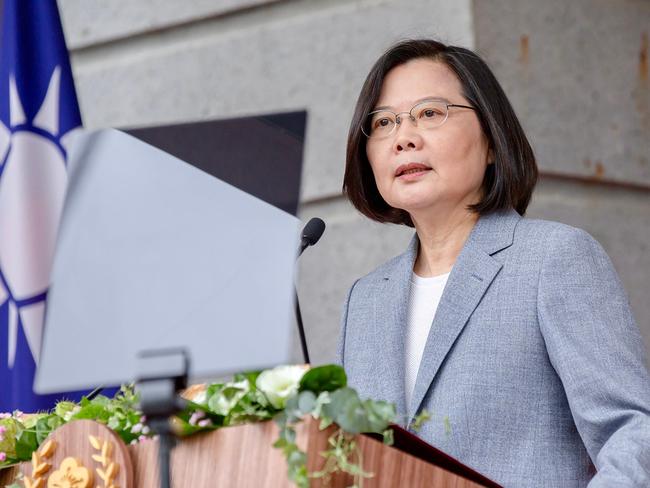
The rogue one
Ms Pelosi is the Leader of the House of Congress. At least for as long as her Democrat Party holds the balance of power before the midterm elections.
The 82-year-old is also second in line in the presidential order of succession – behind only Vice President Kamala Harris. She will be the most senior US government official to visit the young democracy since Newt Gingrich, then also House Speaker, in 1997.
She’s been warned.
Mr Biden has said Ms Pelosi’s visit isn’t a good idea. Chairman of the Joint Chiefs of Staff General Mark Milley and US Defence Secretary Lloyd Austin have publicly voiced their doubts about the move’s wisdom.
“The national security team has engaged her and her team and gave her thorough briefings but were clear from the beginning that she will make her own decision because Congress is an independent branch of government,” a spokesperson for the US National Security Council concluded late last week.
Ms Pelosi understands the risk.
“Maybe the military was afraid our plane would get shot down or something like that by the Chinese,” she quipped.
Ms Pelosi has a long history of promoting human rights and defying China. For example, she unfurled a protest banner in Beijing’s Tiananmen Square in 1991 – right under the nose of the Chinese Communist Party headquarters.
In the end, the career politician may have backed herself into a corner.
If she doesn’t go, “it would be humiliating for her personally, and it would be humiliating for the US Congress and government,” says US think tank Project 2049 researcher Ian Easton. “When she goes, I think it will be an instance of the United States showing solidarity and support for a fellow democracy that faces a very profound and very dangerous campaign of coercion.”
But, by persisting with her plans, she also puts Xi in a position where he must either put up or shut up.
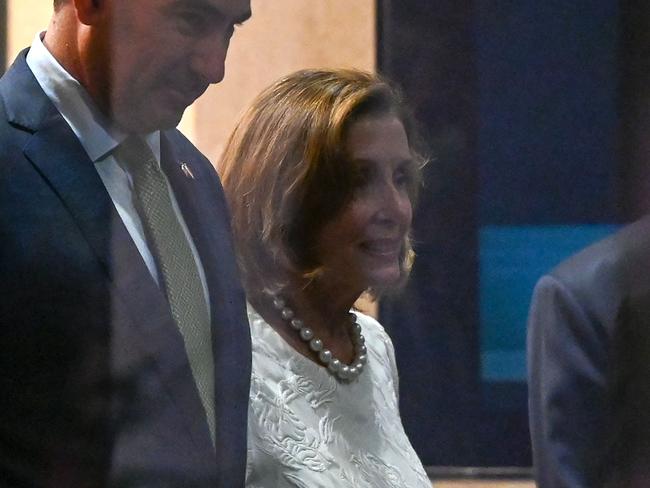
A face to launch a thousand ships
Taiwan’s government has been notably low-key over Ms Pelosi’s visit. But Ms Tsai has been busy setting the groundwork, hosting numerous delegations from the US, Europe, Japan and Australia.
Ms Tsai insists she has no plans to declare Taiwan an independent state.
But she’s also called on the Taiwanese people to be “masters of our own destiny”.
She’s also not afraid to criticise the Chinese Communist regime that failed to seize her island from the Republic of China (ROC).
Xi insists the assimilation of Taiwan was necessary for the “rejuvenation” of the Chinese nation. The “unification” of the two fragments of China is all part of “the general trend of Chinese history” and “the common will of all Chinese people”.
But Ms Tsai says Beijing “offers neither a free and democratic way of life for Taiwan, nor sovereignty for our 23 million people”.
“The more we achieve, the greater the pressure we face from China,” she said during a recent anniversary address.
“We hope for an easing of cross-strait relations and will not act rashly. But there should be absolutely no illusions that the Taiwanese people will bow to pressure. We will continue to bolster our national defence and demonstrate our determination to defend ourselves and ensure that nobody can force Taiwan to take the path China has laid out for us.”
Meanwhile, Ms Pelosi is determined to have the Taiwan President’s back.
“We look forward to productive meetings that will continue to inform Congress’s work to advance our values and interests and strengthen our partnerships in the region,” Ms Pelosi said in a statement over the weekend.
But Ms Tsai is taking an enormous risk.
“Although Taiwan is unlikely to secure any tangible gains, it will bear the brunt of any Chinese response,” says David Sacks, a research fellow at the Council on Foreign Relations.
“It would be wrong to think, however, that Pelosi’s travel plans will determine whether a showdown materialises in the Taiwan Strait. In reality, the United States and China are barrelling toward such a crisis – and it will be far riskier than previous stand-offs.”
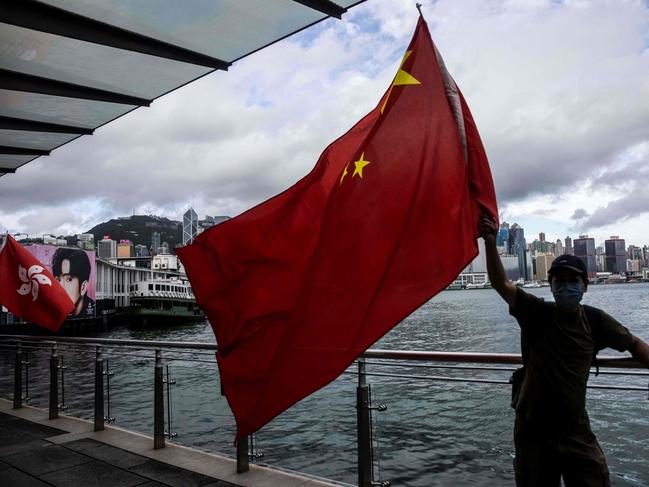
Clash of civilisations
Xi has an uncomfortable record when it comes to his dealings with women.
He’s recently moved to crush China’s feminist movements. Protests have been roughly broken up. Online debate has been censored.
He’s also silenced women who accuse powerful men of sexual assault. Tennis star Peng Shuai is just the highest-profile example.
On top of it all, he’s banned women from the Communist Party’s Politburo Standing Committee, ensuring their voice isn’t heard at the highest levels of China’s government.
It’s typical behaviour for an autocrat, argue Professor Erica Chenoweth and lecturer Zoe Marks of the Harvard Kennedy School.
“Aspiring autocrats and patriarchal authoritarians have good reason to fear women’s political participation: When women participate in mass movements, those movements are both more likely to succeed and more likely to lead to more egalitarian democracy,” they write.
“In other words, fully free, politically active women are a threat to authoritarian and authoritarian-leaning leaders – and so those leaders have a strategic reason to be sexist.”
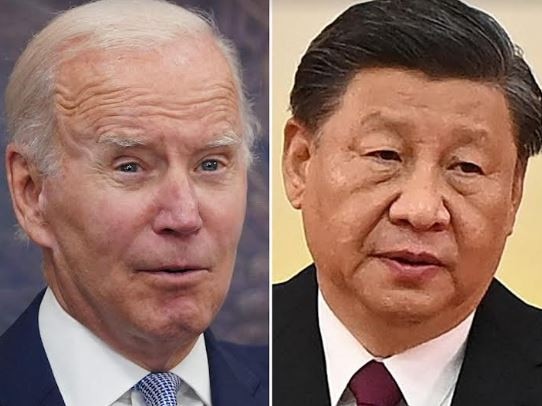
Beijing recently removed its longstanding one-child policy and moved to promote the virtues of being a patriotic Chinese mother. At the same time, ethnic women – such as the Uighurs in Xinjiang – face fines, imprisonment and even sterilisation for having too many children.
A strongman must be seen to be in control of womenfolk.
Xi likely fears the high-level meeting between Ms Pelosi and Ms Tsai “would make him look weak and not in control of critical relationships and undermine his standing”, Mr Sacks says.
The 95th anniversary of the Chinese People’s Liberation Army was on August 1.
The 20th National Congress of the Chinese Communist Party in November is expected to rubberstamp the moves he has already taken to entrench power in his hands.
And war has long been on the Chairman’s mind.
His navy has expanded dramatically. His air force has been modernised. He’s tailored a new and effective marine corps – designed explicitly for invading islands.
“Foreigners who bully China will bleed and get their heads bashed,” is just one of his many belligerent quotes.
Now two women who have long been the target of Communist Party propaganda are about to defy his will publicly. And that threatens to highlight the growing gulf between Xi’s words and his deeds.
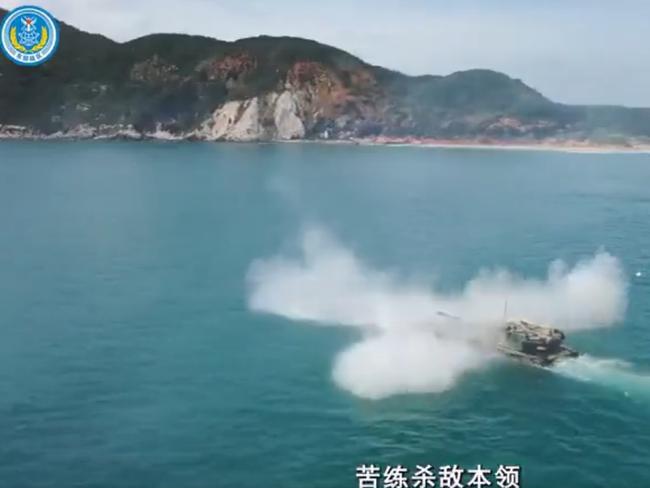
Battlelines drawn
“We’re going to make sure that she has a safe and secure visit because that’s our responsibility,” White House national security spokesperson John Kirby told reporters on Monday. “There is no reason for the Chinese rhetoric. It is not uncommon for congressional leaders to travel to Taiwan.”
China’s foreign ministry made the exact opposite argument. Mr Zhao said Ms Pelosi’s visit “would constitute a gross interference in China’s internal affairs, seriously undermine China’s sovereignty and territorial integrity, wantonly trample on the one-China principle, greatly threaten peace and stability across the Taiwan Strait, severely undermine China-US relations and lead to a very serious situation and grave consequences”.
Now both sides are drawing up battlelines around the island democracy of 24 million people.
USNI News Fleet and Marine Tracker: Aug. 1, 2022https://t.co/Hvzv7zIq51pic.twitter.com/JolCzZDHfl
— USNI News (@USNINews) August 1, 2022
Three US capital ships – the nuclear-powered aircraft carrier USS Ronald Regan and the smaller “Lightning carriers” USS America and USS Tripoli – are active in the region.
The USS Regan battle group is in the Philippine Sea, moving there through the South China Sea from Singapore last week as talk of the tour began to unfold.
The USS America and its air wing of 20 F-35B stealth fighters are in the East China Sea, watching over China’s latest incursions on Japan’s Senkaku Islands group.
The USS Tripoli, with a similar number of F-35Bs, is undergoing exercises south of Okinawa.
Satellite capture PLA aircraft carrier and amphibious assault ship leave port#OSINTpic.twitter.com/dRHhNNhNB4
— GEOINT (@lobsterlarryliu) August 2, 2022
But, as Ms Pelosi arrived in Singapore on the first stop of her Asia tour, Beijing declared a series of military exercises in the South China Sea to run between August 2-6 – with an aircraft carrier and assault ship have been observed leaving Hainan island. Naval exercises are already under way in the Yellow Sea. And extra aircraft have been observed assembling on the airfields closest to Taiwan.
“What that does is it does increase the risk of miscalculation,” Mr Kirby says, “which could lead to unintended consequences, and that’s really the risk. It’s not so much that there might be a direct attack, but it raises the stakes of miscalculation and confusion, which could also lead to unintended consequences.”
Consequences, Beijing says, are what it’s all about.
“The US must not arrange for Speaker Pelosi to visit the Taiwan region and must stop official interactions with Taiwan,” Mr Zhao said late last month.
“Should the US side insist on doing otherwise, China will take strong and resolute measures to safeguard its sovereignty and territorial integrity. The US must assume full responsibility for any ensuing consequences.”
Originally published as Nancy Pelosi Taiwan visit: One strongman versus two powerful women




